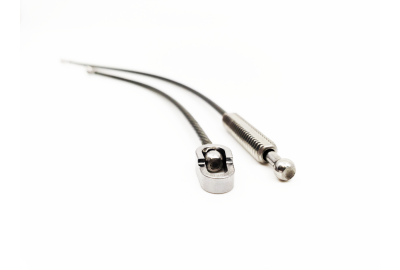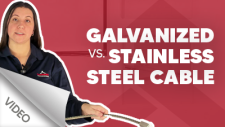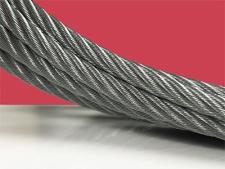Among the best ways to demonstrate your business’ value is by delivering the highest possible quality products in your category. And conversely, if your products possess inconsistent or substandard quality, there’s no faster way to the breadline.
This is why you need to work with manufacturers who treat quality standard practices as the cornerstone of their day-to-day operations. When you work with Carl Stahl Sava Industries, all parts and materials produced by Sava strictly adhere to ISO 9001:2015 standards and requirements.
What are ISO 9001 Standards?
ISO 9001 is a series of international quality management system standards that manufacturers must adhere by in order to prove their products meet statutory and regulatory requirements. These standards are designed to protect buyers against products being introduced to the world that fail to satisfy strict quality demands. The requirements are used to help consumers identify quality materials that meet all regulatory requirements, while maintaining the highest level of quality standards set by the International Organization for Standardization (ISO). In an effort to ensure such requirements are always up-to-date, ISO 9001 standards are updated every five years.
An important characteristic of ISO 9001 standards is that they are not centered entirely on a product’s quality. Rather, ISO 9001 standards are specific to the process-based production of the materials in use in production, along with the process applied to the manufacturing of a product. Instead of focusing on the finished product, for instance, a manufacturer must demonstrate its processes meet or exceed the established requirements. Only then, when ISO requirements have been satisfied, will the manufacturer receive ISO 9001 certification.
ISO 9001 Requirements
The ISO 9001 requirements are broken down into eight different sections. Within the ISO 9001, each section is referred to as a "clause." Five of the eight clauses are mandatory, while the first three clauses are not. However, each of these three non-mandatory items help with achieving an ISO-approved overall standard of production.
The five clauses are as follows:
- Quality Management System
- Management Responsibility
- Resource Management
- Product Realization
- Measurement, Analysis and Improvement
The five clauses above are mandatory. However, the Product Realization section is the only clause that allows for exemption. The Product Realization section allows a company to choose to remove certain sections that are deemed not applicable to the company -- for example, a company can exclude the design requirements if they do not design products.
The only way a company is eligible to receive an ISO 9001 certification is if they meet or exceed the practices and quality standards found in the five required clauses. The three additional clauses that are not required are "Standard," "References to Understand the Standard Better," and "Terms and Definitions." These make up the first three sections. Although they do not include any requirements, they are helpful to the overall process and deal with the scope of the standard; they define terms used throughout process and give explanations to provide a better understanding of commonly used ISO terms.
ISO 9001 Certification Process
In order to obtain ISO 9001 certification, the manufacturer must follow all steps of implementation, which includes following the guidelines outlining the ISO 9001 standard, fulfilling each requirement and finally meeting the customer’s statutory and regulatory requirements. An ISO Certification Body member will then audit the facility and manufacturing processes.
Once the company has demonstrated its ability to meet ISO 9001 requirements and passes the audit, the Certification Body will provide the organization with its certification. The certification is valid until the next ISO 9001 update is released. Each time ISO 9001 standards are updated, the certified company will need to be audited again to maintain valid ISO certification status.
Only Work With Companies That Demonstrate The Best Quality Production Standards
Sava demonstrates the highest quality production standards and adheres to ISO 9001:2015 requirements, ensuring your products are solutions you and your customers can be proud of. Sava’s ISO 9001:2015 certification means you’re guaranteed:
- Consistent product reliability and quality
- Confidence that your products meet the strictest quality standards
- Satisfied customers
Sava prides itself in its ISO 9001:2015 certification. If your products require a faithful commitment to meeting the most rigid quality standards, and your customers demand nothing less, then turn to the team at Sava, producers of ISO 9000:2015 certified products.






